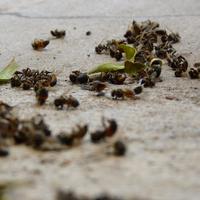
Dec 22, 2014
How Do You Put a Price Tag On Nature?
Back in 1997, a team of scientists slapped a giant price tag on the earth. They calculated the dollar value of every ecosystem on the planet, and tallied it all up: $142.7 trillion. It's a powerful form of sticker shock—one that could give environmentalists ammunition to protect wetlands and save forests. But some people argue it actually devalues something that should be seen as priceless. Then the apple farmers of Mao county in central China turn this whole debate upside down and make us question the value of understanding nature in terms of dollars and cents.